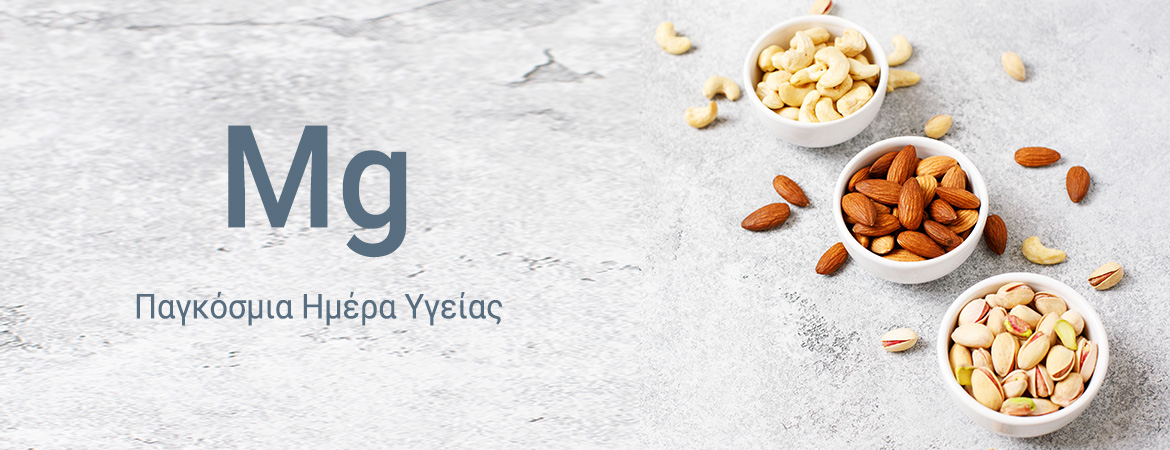Magnesium Health Benefits
Magnesium Health Benefits
It is now known for many years that magnesium is abundant in the body and plays a role in many biological functions and enzymatic reactions! The sufficiency of magnesium in the human body is of the utmost importance for the prevention or even the treatment of anxiety, insomnia, and osteoporosis.
Many international studies have demonstrated the prophylactic effect of magnesium on the treatment of migraine, as most migraine patients have been shown to be deficient in magnesium. Clinical trials performed prophylactically for several weeks in migraine-induced migraine patients with doses ranging from 500 to 600 mg/day showed a significant reduction in the frequency, duration, and intensity of migraines (Koseoglu et al., 2008; Tarighat et al., 2012). In addition, many new studies report magnesium deficiency and in patients with asthma, so potential magnesium and its known muscle relaxant effect may benefit these patients.
The beneficial role of magnesium for heart function comes from its effect on
cardiac metabolism, calcium homeostasis, and vascular tone.
Because it has the property of transferring calcium to the cells, magnesium can inhibit muscle contractions, promote vascular relaxation, and thereby lower blood pressure levels. A recent meta-analysis (Kass et al., 2012), 22 clinical trials, with an average magnesium consumption of 410 mg/day, reported a decrease in systolic blood pressure from 3 to 4 units and from 2 to 3 for diastolic blood pressure.
The positive effect of magnesium on lowering blood pressure has led to research on its impact and prevention of strokes (Larsson et al., 2012). In other words, patients with higher magnesium intake were at reduced risk for strokes.
Diabetes and metabolic syndrome are two conditions for which
the role of magnesium has been studied more in recent years.
Indeed, magnesium plays an important role in the metabolism and transport of glucose through its effect on the activity of the three proteins involved in these processes. Tests performed in people with type 2 diabetes, but also in obese patients, showed improvement in blood glucose levels after three to six months of continuous magnesium supplementation (Guerrero-Romero et al., 2004; Mooren et al., 2011). Although magnesium has a strong 'antidepressant' effect, it has not been fully understood by all that its lack of involvement is involved in many processes associated with the development of depression.
Magnesium can form the activity of the corticotropic shaft (HPA). In 2012, Austrian researchers demonstrated, using a mouse model, how magnesium can contribute to depression (Sartori et al, 2012). In particular, anxiety resulted from a low-magnesium diet, which lasted for several weeks. Magnesium deficiency caused induction of overproduction of corticotropin and higher levels of ACTH in the blood.
This deregulation has been seen as a key feature of people experiencing anxiety. Scientists believe that magnesium could function as an undefined antagonist at NMDA glutamate receptors. This course is similar to that used by ketamine, whose strong antidepressant effect has been discovered since 2000.
To sum up, magnesium is one of the most
important electrolytes for human metabolism!
Its beneficial properties include:
- Power generation
- Reduce fatigue
- Nutrient metabolism
- Adjustment of blood pressure
- Nerve pulse adjustment
- Adjustment of vasoconstriction tone
- It contributes to bone health
Magnesium deficiency has been associated with:
- Atherosclerosis
- Changes in blood lipids
- Changes in blood sugar levels
- Type 2 diabetes
- Myocardial infarction
- Hypertension
- Stones in the kidneys
- Premenstrual syndrome
- Depression
- Psychiatric disorders

